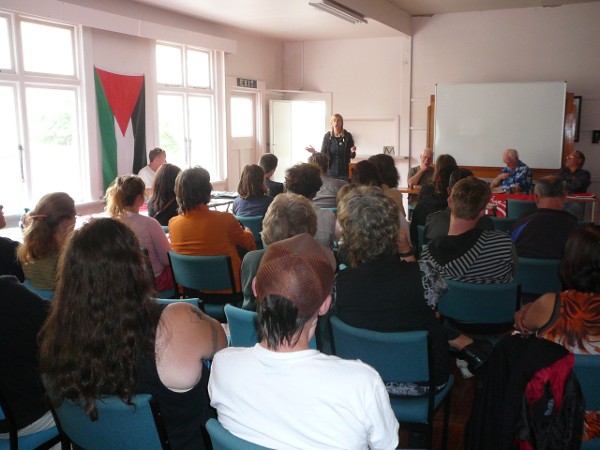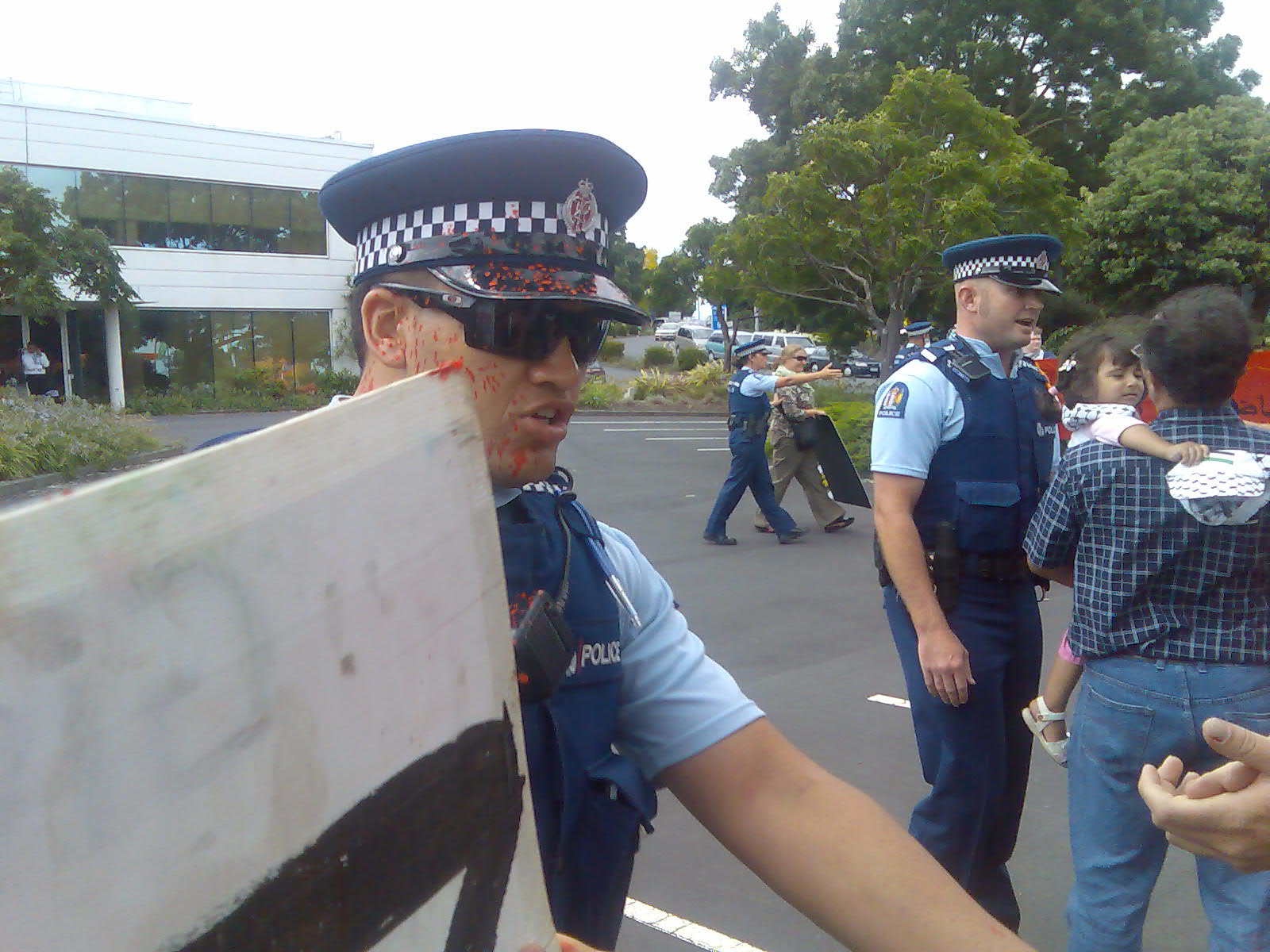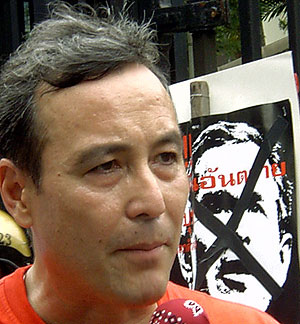Marika Pratley (Wellington branch of Workers Party)

Julie Tyler was threatened with serious misconduct by Burger King for posting the comment “Real jobs don’t underpay and overwork like BK does” on a friend’s Facebook page. This event highlighted the limitations of democracy on the internet and social networking sites. It also brings to question limitations on freedom of speech in general – for example – in the workplace.
This is not the first time that workers or activists have faced censorship on social networking sites. In 2010 individual profiles and groups were shutdown by Facebook for expressing support for organisations such as the Popular Front for the Liberation of Palestine (PFLP) and Revolutionary Armed Forces of Colombia (FARC). In 2011 Egypt’s entire internet services were shut down by the government in an attempt to prevent communication between organisers and to stop democratic protests from taking place.
Continue reading “Social networking sites: Why are they censored?”
The implications of the Terrorism Suppression Act
Jared Phillips, Co-ordinating editor, The Spark

Public meetings have been held in New Zealand’s major centres to build opposition to increasing state power being used against activists and oppressed groups. Early this year the Workers Party and the Popular Front for the Liberation of Palestine (PFLP) Solidarity Campaign hosted one such forum in Christchurch with a focus on the implications of the Terrorism Suppression Act (TSA). Five speakers – Michael Knowles, Valerie Morse, Murray Horton, Paul Piesse, and Michael Walker – explored the local and international dimensions.
Continue reading “The implications of the Terrorism Suppression Act”
The Search and Surveillance Bill: A Threat to Our Civil Rights
Cameron Walker, Published in Craccum 19 April 2010
National Day of Action against the Search and Surveillance Bill: April 24
On Saturday 24th April there will be protests around the country against the Search and Surveillance Bill. The Auckland protest will start at 2pm, opposite the Town Hall, Queen Street.
The Search and Surveillance Bill is a law currently being debated by the New Zealand Parliament. According to its supporters, such as the National and Labour Parties, it is necessary because New Zealand’s laws relating to search and surveillance powers are currently spread across a large number of statutes and it would make things much easier for the Police and other state agencies if they were all put in one statute. However, the Bill not only does this but also creates a number of new powers for state agencies to monitor, search and detain people.  The Auckland Council for Civil Liberties refers to it as ‘perhaps the greatest single expansion of state powers of entry, seizure and surveillance in New Zealand history’. Bizarrely the new powers are not just granted to the Police but also 70 other state agencies, including the Pork Board and Work and Income NZ (WINZ). At its first reading in Parliament only the Greens voted against it. Continue reading “The Search and Surveillance Bill: A Threat to Our Civil Rights”
The Auckland Council for Civil Liberties refers to it as ‘perhaps the greatest single expansion of state powers of entry, seizure and surveillance in New Zealand history’. Bizarrely the new powers are not just granted to the Police but also 70 other state agencies, including the Pork Board and Work and Income NZ (WINZ). At its first reading in Parliament only the Greens voted against it. Continue reading “The Search and Surveillance Bill: A Threat to Our Civil Rights”
WAIHOPAI AND THE GHOST OF DAVID LANGE
Don Franks
Well done the three antiwar activists from the Ploughshares group, and  the jury who found them not guilty of burglary and intentional damage in the Wellington District Court. The not guilty verdict relates to charges laid when the men deflated one of the domes at the Waihopai spy base near Blenheim two years ago. Continue reading “WAIHOPAI AND THE GHOST OF DAVID LANGE”
the jury who found them not guilty of burglary and intentional damage in the Wellington District Court. The not guilty verdict relates to charges laid when the men deflated one of the domes at the Waihopai spy base near Blenheim two years ago. Continue reading “WAIHOPAI AND THE GHOST OF DAVID LANGE”
University uses state forces against activists
[youtube=http://www.youtube.com/watch?v=GAuy7pFn8L4]
Statement:
I/we call on Victoria University to lift the trespass notices on Heleyni Pratley and Joel Cosgrove.
(Organisation/title/institution for identification purposes only)
Victoria University: No Free Speech Here Thanks.
Victoria University management has repeatedly refused to answer the various charges laid against it by Workers Party activists Heleyni Pratley and Joel Cosgrove in response to the management imposing a two-year trespass order on them.
“This draconian trespass order was imposed on us for the crime of participating in a protest against substantial fee rises,” say Pratley, a former student exec member, and Cosgrove, last year’s student president.
Two students have also been charged with serious misconduct for participating in the protest, at which a few eggs were thrown at university councillors.
“Protesters annoy Vic; they get in the way of its smooth business operation, that’s why they put any protesters in a box guarded by security guards,” say Pratley and Cosgrove.
“Every year Victoria University receives hundreds of millions of public funds and claims to be the critic and conscience of society as well as the focus of a wider community. Yet when challenged on their behaviour they ban and attempt to silence anyone who disrupts their corporatist agenda. They’ve trespassed us because VUW cannot stand being called to account. Now they’re setting up kangaroo courts to punish the students who participated.
“The university is intentionally refusing to answer any questions about their actions, to silence any discussion, because what they did is indefensible and they know it,” say the pair.
OPEN BORDERS OR LEFT NATIONALISM?
History
by Don Franks
Since its formation the Workers Party of New Zealand has recognised that immigration controls are essentially a boss’s device to control workers. Accordingly, the Workers Party has always stood firmly in opposition to immigration controls. Point 4 of our 5-point programme spells it out in these words:
“For working class unity and solidarity – equality for women, Maori and other ethnic minorities and people of all sexual orientations and identities; open borders and full rights for migrant workers”.
Some people see our policy of open borders as extremist. Others realise that a truly internationalist position can’t settle for anything less. Genuine socialists insist on workers absolute freedom to travel and take up residence wherever they choose. Continue reading “OPEN BORDERS OR LEFT NATIONALISM?”
“Guilt by accusation” law stalled
Byron Clark The Spark March 2009
The government has stalled a controversial change to copyright law that would have seen Internet Service Providers removing Internet access from anyone accused (not convicted) of violating intellectual property laws though downloading pirated music or video. The controversial clause was removed by a parliamentary select committee last year, but was put back into the legislation by then-Labour Government minister Judith Tizard – with National’s support. Prime Minister John Key has conceded however that this change to the Copyright Act could be “problematic”, and suggested it could be thrown out. In the week leading up to the original implementation date a web based campaign organised by the Creative Freedom Foundation saw people ‘black out’ content on their websites in protest against the law, culminating on February 23rd when most of the country’s major blogs (and a number of other websites) took down front page content for the day and replaced it with a black page.
Oppose “guilt by accusation”
One week from now New Zealand’s new copyright laws will come into effect, including the “guilt by accusation” clause (Section 92A) meaning Internet Service Providers will be forced to take down internet connections and websites of anyone accused (not convicted) of copyright infringement. The Workers Party is opposed to this clause and supports the protests against it that have been occurring. As well as section 92A we support repealing the parts of the law criminalising circumventing the so-called “Technological Protection Measures” on media such as DVDs, something we have covered in detail here.
Stop the use of lèse-majesté in Thailand – Defend freedom of speech

John Moore from the Workers Party, who has lived and worked in Thailand, gives details of an international campaign to stop the use of lèse-majesté in Thailand.
The Thai government is currently cracking down on dissent, and is using laws to ‘protect’ the monarchy to squash critical voices in Thai society. Such laws are known as lèse-majesté and frame criticism or insulting of a monarch as treason. Thai Marxist and academic Giles Ji Ungpakorn is facing lèse-majesté charges for the writing of his book A Coup for the Rich. A pdf version of this book can be found here.
A petition/open letter has been initiated by Thai activists calling for the scrapping of lèse-majesté laws and that the Thai government drop all proceedings in lèse-majesté cases.
Giles Ji Ungpakorn has been a ceaseless critic of the military’s intervention into politics in Thailand. He has accused the current government of gaining power through a coup. The elected Peoples Power Party government was recently deposed through a court order. The current Democratic Party led government was put together with the aid of the head of the military, and has full military backing.
Giles has been a consistent critic of authoritarian measures used by Thai state forces. He has championed the cause of workers and the rural poor in Thailand. He has also campaigned against the brutal military intervention against ethnic Malay insurgents in the South of Thailand.
The Workers Party is happy to play a part in offering solidarity to Giles and to help with the international campaign against the use of lèse-majesté in Thailand.
Below is the open letter/petition which Giles Ungpakorn is asking people to sign:
Continue reading “Stop the use of lèse-majesté in Thailand – Defend freedom of speech”

